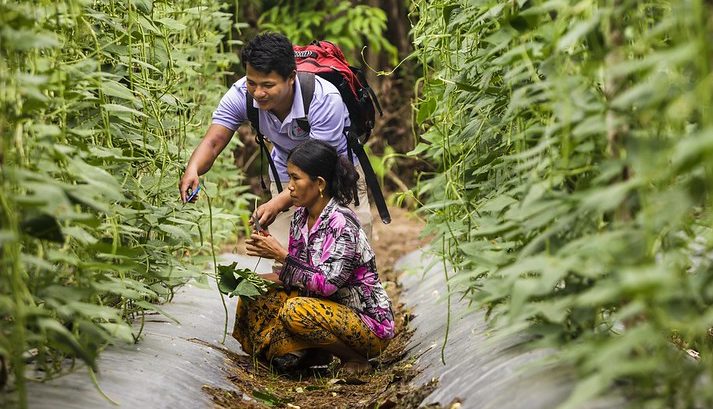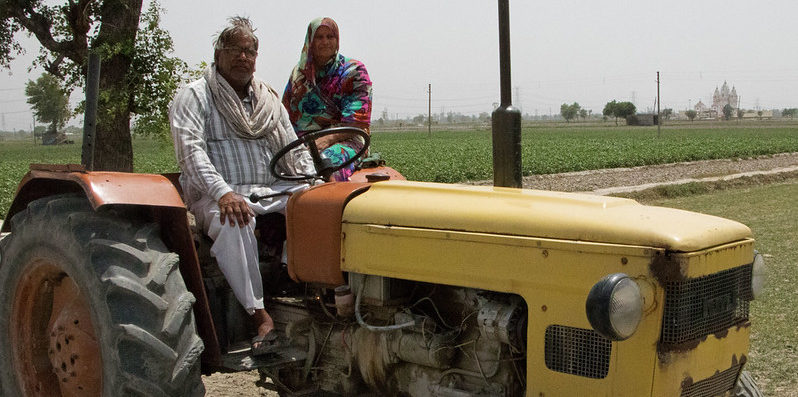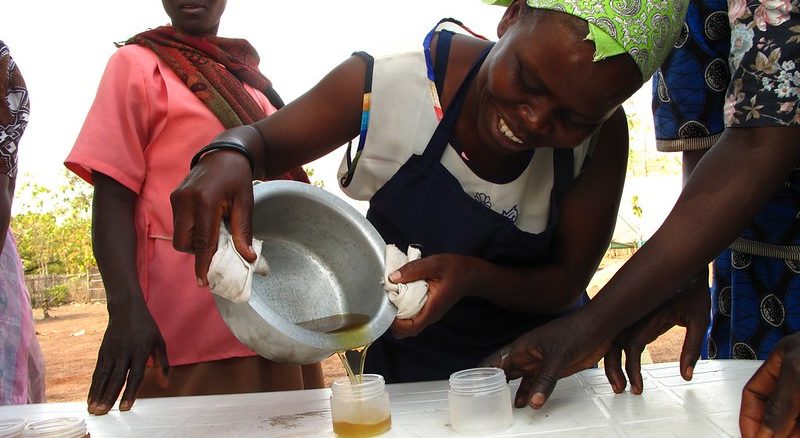Catch up with the covering of two SLU students: Closing the loop: making food systems circular and Fostering food systems transformations through innovation
The Agri4D conference – short for Agriculture for Development conference – has been organised yearly since 2015 by the Swedish University of Agricultural Sciences (SLU). For the first time, the conference’s focus was food systems, taking a more holistic approach to the issue of food, moving away from the mere production side. In a world with changing climate, steep population growth, rapid technological advances, increasing economic gaps and changing consumer demands, it is time to find a way to feed the planet sustainably.
The hybrid character of the conference made it possible for over 500 people from 80 countries to participate in the event. Each day of the three-day conference was organised around two specific topics, enabling a broad, cross-cutting approach to issues discussed. Researchers, policymakers, and farmers associations from around the globe were able to share their work and to present posters on an online platform, that could be used as a networking tool. The broad lineup of session topics, ranging from Justice in Food Governance to Circularity and Resilience allowed researchers from various disciplines to share their views on food systems related issues and to discuss how to best transform food systems, its myriad of compounds changing at a rapid pace.
Here are the main takeaways from the conference.
Innovation to increase circularity in food systems
Throughout the sessions, there was an emphasis on the need to aim for more circularity, i.e., to reduce the amount of resources going into food systems (e.g. water, fertilisers, pesticides) as well as escaping from them (in the form of food loss and waste, pesticide leakage, and carbon emissions). The role of innovation is diverse and can happen in institutional, organisational, and technological environments. It can very well be based on spiritual/mental and technology-based models. Once an innovation is out, there’s a need to make it become a reality on the ground, a step often overlooked by innovators. Multisectoral activities must first analyse the needs, develop a suitable solution and then make sure the innovation is adopted by those who need it most. Universities can play an important role in this multistakeholder approach and should aim for more cross-departmental research.
Presenters/Participants also discussed digitisation in innovation, pointing at both the risks and opportunities of opting for tech-solutions: Who owns data? What happens when something needs to be fixed? Tech-solutions can, at times, take away people’s power over what they do.
Farmers won’t innovate if they can’t support their family, reminded Magnus Jirström, SLU, mentioning here the importance of strong institutions for any endeavour related to food systems.
Inclusiveness and food justice
The topics of innovation, digitisation, research, and access to markets come down to the importance of involving farmers and food transformers directly. As Ivar Virgin, Stockholm Environment Institute (SEI), pointed out; ”According to farmers themselves, to what extent should this happen?”.
Truly farmers-centred approaches should make sure the realities on the ground and the actual needs are understood, and understand the real struggles, capacities and hopes of the people who need the most support. These go against a long tradition of top-down approaches, where solutions aren’t adopted in practice in the end, since they are not tailored to a specific situation.
Agricultural training was raised as a way of disseminating knowledge and applying research on the ground. But similar questions persist here; Who decides whom to invite to training sessions? Who pays for them? Inclusiveness must be thought of at every step of any process.
Gender issues prevail when discussing food systems, as an estimated 43% of the food worldwide is produced, transformed and prepared by women. Women lack representation when it comes to trading – if supported in the right direction, they would see big improvements to their independence. These actions should be taken with an understanding of the need of bettering gender relations and not only women empowerment, to avoid a gender imbalance of a new kind. For instance, this would also differentiate people’s treatment depending on their caste or religion.
“You might end up giving more work to women instead of equalising rights” (Bridget Bawlya Umar, The Nordic Africa Institute).
The topic of food justice comprehends an inclusive way of tackling issues related to food. Policy decisions and governance participation must consider the role of underrepresented groups (such as women, smallholder farmers, and Indigenous People). As for innovation, it remains difficult to talk about food justice when access to land and water aren’t even secured, as Prince Simunkombwe, Knowledge Exchange Hub, pointed out. Many hurdles are yet to be overcome before considering a different – inclusive and equal – approach to food governance.


